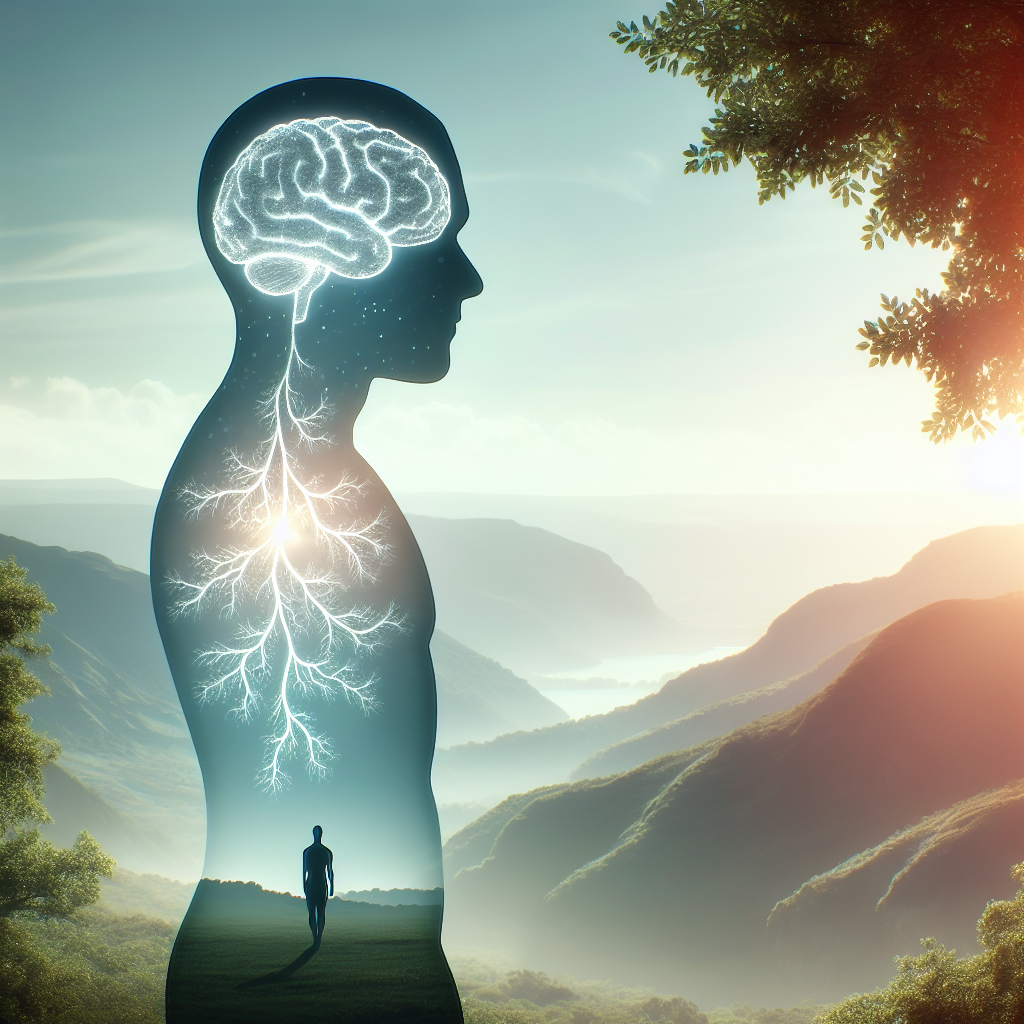How Does The Mind-body Connection Influence Body Image And Self-esteem?
In the article, “How Does The mind-body connection Influence Body Image And Self-esteem?”, you are taken on a journey that explores the fascinating interplay between psychological and physical factors and their combined influence on one’s perception of self. The narrative pulls apart the intricacies of the mind-body dialogue – a continuous and elusive intercommunication between thoughts, emotions, and bodily sensations – and cogently presents how this inner dialogue shapes both body image and self-esteem. Enriched with scientific research, personal anecdotes and practical guidance, the article provides a well-rounded understanding of this complex, yet interesting relationship, encouraging you to consider new ways of perceiving and appreciating your physical self.

Understanding The Mind-Body Connection
The mind-body connection refers to the intricate relationship between our physical wellness and our psychological wellbeing. This concept acknowledges that both our mind and body operate synergistically, and that our thoughts, feelings, beliefs, and attitudes can directly affect our bodily functions and overall health.
Exploring the mind-body relationship
A grasp of the mind-body relationship involves understanding how mental and physical health are intertwined. It’s clear that the state of your mental health can impact your physical wellbeing and vice versa. For instance, stress and anxiety can cause physical symptoms such as headaches or stomach problems. On the other hand, chronic physical health conditions like heart disease, diabetes, or obesity could lead to mental health issues like depression and anxiety.
Effects of mental health on physical health
Your mental health plays a crucial role in your overall physical health. Conditions such as depression, anxiety, and chronic stress have been shown to impede the body’s natural ability to heal, resulting in slower recovery from illnesses and diseases. Prolonged stress can even lead to harmful physical consequences such as hypertension, irregular heart rhythms, and damage to the immune system.
Impact of physical health on mental well-being
Just as your mind can affect your body, so too can your body affect your mind. Regular physical activity increases the production of endorphins, known as “feel-good” hormones that promote feelings of well-being and happiness. Conversely, chronic physical conditions can increase the likelihood of developing mental health problems. For instance, persisting pain, limited mobility, or a concerning diagnosis can dramatically affect mental well-being, potentially leading to depression, stress, or anxiety.
Perception Of Body Image
Definition of body image
Body image is the way we perceive our physical self, including whether we feel attractive and whether others like our looks. It involves our perception, emotions, thoughts, and awareness of our bodies. It can be influenced by many factors such as self-esteem, social pressure, and media representation of beauty.
Influences on body image perception
Our perception of our bodies is not forged in isolation. Rather, it is influenced by an array of social, cultural, and familial factors. Exposure to idealized bodies through mass media, the societal pressure of achieving physical attractiveness, and personal experiences with family, friends, or partners all shape how we view and embrace our bodies.
Imbalances in body image perceptions
Sometimes, people develop imbalances in their body image perceptions. They may see themselves as too thin, too heavy, not muscular enough, or generally unattractive, even if this does not align with others’ perceptions or objective measures. These skewed perceptions can often lead to obsessive and harmful behaviors aimed at achieving the ‘ideal’ body and may result in various psychological and physical health problems, including eating disorders, depression, self-harm, and anxiety.
The Role Of Self-Esteem In Body Image
Defining self-esteem
Self-esteem refers to your overall sense of self-worth or personal value. It is related to how much you appreciate and like yourself, including your overall positive or negative attitude towards yourself. Your self-esteem forms a fundamental part of your overall mental health.
Understanding the link between self-esteem and body image
There is an undeniable connection between self-esteem and body image. A positive body image is linked to higher self-esteem, more self-acceptance, and greater optimism about life in general. Conversely, a negative body image is associated with lower self-esteem, self-criticism, mental health issues, and an overall poorer quality of life.
Effects of low self-esteem on body image
Low self-esteem can greatly influence your perception of your physical self, often resulting in a negative body image. People with low self-esteem often are overly critical of their physical appearance and may focus excessively on perceived flaws and shortcomings. This can lead to harmful behaviors such as dieting, overexercising, or eating disorders in an attempt to correct these perceived flaws.

Mind-Body Connection Influence On Body Image
How thought patterns affect body image
Your thought patterns play a significant role in shaping your body image. Negative self-talk and destructive thoughts about your body can lead to a poor body image, while positive and compassionate thinking can foster a healthy body image. Through understanding this, it’s possible to harness the mind-body connection to develop healthier perceptions of your appearance.
Effects of mental health disorders on body image
Mental health problems like anxiety, depression, and eating disorders can all lead to distorted body image. This can result in a preoccupation with perceived flaws and a distorted view of one’s body. Understanding this interaction between mental health and body image highlights why it is vital to address these issues concurrently.
Relevance of mindfulness in improving body image
Mindfulness, the practice of being fully present in the moment, has shown great relevance in improving body image. It allows you to observe your thoughts and feelings without judgment, promoting a more compassionate and accepting relationship with your body. This practice can change the way you relate to your body and help foster body appreciation, acceptance, and gratitude.
Mind-Body Connection Influence On Self-Esteem
Effects of physical health on self-esteem
Physical health can significantly impact how you perceive yourself and, hence, your self-esteem. Regular physical exercise releases mood-boosting endorphins, builds self-confidence, and improves body image – all contributing to enhancing self-esteem. Conversely, poor physical health, constant fatigue, or chronic illness can result in low self-esteem due to feelings of inadequacy or frustration.
Impact of mental health on self-esteem
Mental health disorders such as depression, anxiety, and eating disorders often are intertwined with issues of self-esteem. They often arise from and contribute to feelings of worthlessness, inferiority, or guilt, drastically reducing self-esteem.
The role of body image in self-esteem
Body image has a profound impact on self-esteem. A negative body image can lead to feelings of unworthiness and reduced self-esteem, while a positive body image, where you accept, respect, and care for your body, can boost your self-esteem, enhance your mental well-being, and improve your overall quality of life.
Cultural And Societal Influences On Body Image And Self-Esteem
Impact of media and popular culture
Media and popular culture play a significant role in shaping notions of beauty, frequently promoting unattainable and unrealistic body ideals. Regular exposure to such images influences how people perceive their bodies and can contribute to negative body image and low self-esteem.
Peer pressure and social influences
Peer pressure and societal expectations significantly affect body image and self-esteem. Analogous to media influence, societal beauty standards often magnify insecurities about physical appearance, leading to poor body image and reduced self-esteem.
Cultural standards and expectations
Different cultures often have distinct standards and expectations for physical appearance, influencing body image and self-esteem. These cultural expectations can lead to individuals striving to meet these standards, frequently through dangerous or unhealthy methods, such as excessive dieting or overexercising.
Negative Impacts of Poor Body Image and Low Self-esteem
Mental health implications
Poor body image and low self-esteem are closely linked to mental health issues such as depression, anxiety, and eating disorders. Negative self-perception can lead to self-loathing or feelings of worthlessness, contributing to such mental health problems.
Effects on lifestyle and daily functioning
Clinically low self-esteem and negative body image can severely affect lifestyle and day-to-day functioning. They can lead to anxiety, social withdrawal, unnecessary dieting, overexercising, and other unhealthy behaviors.
Repercussions on relationships and social interaction
Negative self-perceptions can negatively influence relationships and social interactions, as people with poor body image or low self-esteem may withdraw from social situations due to fear of judgment or rejection, leading to isolation and loneliness.
Positive Approaches To Enhance Body Image And Self-Esteem
Incorporating body positivity practices
Inculcating practices of body positivity encourages learning to love and accept your body as it is, promoting a healthier body image and boosting self-esteem. This involves rejecting societal pressure to conform to a certain body type and focusing on body function and feel rather than appearance.
Promoting positive self-talk and self-love
Positive self-talk and self-love practices can help combat negative thoughts about one’s body and promote positive body image and self-esteem. They foster self-acceptance and reduce the inclination to compare oneself with others.
Engaging in regular physical activity
Regular physical activity enhances feelings of physical competence, builds confidence, and promotes positive body image and self-esteem. It also leads to improved physical health, which can further boost self-esteem.
Therapeutic Interventions For Body Image And Self-Esteem Issues
Role of cognitive behavioral therapy
Cognitive-behavioral therapy (CBT) is a therapeutic approach that helps in correcting flawed thinking patterns and negative beliefs about oneself, including body image and self-esteem. It is effective in treating disorders related to body image and self-esteem like eating disorders and body dysmorphic disorder.
Benefits of mindfulness-based therapies
Mindfulness-based therapies promote full presence in the current moment and acceptance of oneself without judgement. They can help individuals develop healthy coping mechanisms, foster understanding and compassion towards their body, and significantly enhance body image and self-esteem.
Involvement of family and peer support groups
Family and peer support groups provide a platform for people dealing with issues related to body image and self-esteem to share their experiences, learn from others, and realize that they are not alone in their struggles. Support groups can aid healing and recovery by providing a sense of belonging, practical advice, and emotional support.
The Future Research On The Mind-Body Connection
Potential areas of exploration
Future research on the mind-body connection might uncover deeper insights into its role in influencing body image and self-esteem. Potential areas for exploration could include investigating variations in body perception, the effects of positive affirmations on body image and self-esteem, and the bi-directional impact of mental and physical health.
Relevance of research in solving body image and self-esteem issues
Understanding the exact mechanisms and magnitude of the mind and body’s effect on self-perception can guide practitioners to develop more effective interventions to enhance body image and self-esteem. The research could contribute to evidence-based strategies aimed at promoting body positivity and self-value.
Implications of future findings on mental and physical health interventions
Future findings on the mind-body connection could have significant implications on mental and physical health interventions. They may strengthen current therapeutic approaches while contributing to the development of new ones focusing on enhancing the positive relationship between the mind and body. Such findings can contribute to a holistic approach to treatment, emphasizing both physical and mental health.

